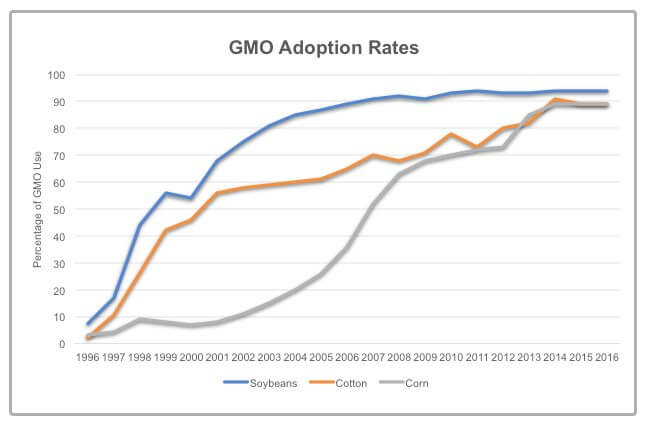Are Your Supplements Tainted with GMOs?

If you’re a health-conscious person, you already know that GMO foods can be harmful because they’re contaminated with toxic pesticides. You know they’re wildly controversial. And you might even know that over 26 countries have total or partial bans on GMOs over public safety concerns.
So like anyone who values their health, you take steps to avoid GMO (genetically modified organism) foods by choosing organic or looking for a non-GMO label on what you buy.
But what most people fail to realize is that GMOs can be found in more things than what you find on food shelves. In fact, you still may consume GMOs several times a day without even realizing it.
That’s because low quality supplements are filled with GMOs. It’s the dirty little secret of the vitamin industry. Surprising? Maybe at first.
But what’s more surprising is how common GMOs are throughout the entire food industry.
The Silent Invasion of GMOs in our Food Supply
These days it seems like GMOs are lurking everywhere. So it’s easy to get overwhelmed as a health-conscious consumer.
I mean sure, we know GMOs are common. However, this data published by the United States Department of Agriculture, shows exactly how deep seated GMO crops have become throughout the food supply.

The graph shows how the use of GMO crops like soybeans, corn, and cotton has increased from less than 10% in 1996 to a whopping 94% in 2016.
But this is just the tip of the iceberg. Most of these crops make their way into your home hidden as food additives. The biggest concerns are soy and corn due to the high levels of glyphosate applied to GMO varieties, and their prevalence in countless other foods.
If you looked in your pantry right now, you might find many GMO-derived ingredients listed in the small print of food packaging.
- Citric Acid
- Corn syrup or corn starch
- Maltodextrin
- MSG (monosodium glutamate)
- Soy lecithin
- Xanthan gum
And that’s only a small sample of the GMO-derived ingredients hiding in your food. The same goes for most health supplements.
Some companies will use GMO-derived additives as a filler, sweetener, or emulsifier to compensate for poor quality ingredients. Others extract vitamins from GMO foods (such as corn).
That means you could be spending your hard earned money on a vitamin or protein shake that’s diluted and provides next to zero health benefits.
But not all companies use GMO additives. The best are committed to organic ingredients and don’t use fillers. That’s why you should always check to see if a supplement is contaminated with GMOs before buying it. And this is how you can do it.
How to Spot GMO Ingredients in Supplements
The easiest way to tell if your supplement doesn’t contain GMOs is to look for a non-GMO badge. Another way is to buy organic supplements. An organic ingredient is always non-GMO.
It’s also important to be aware of the common GMO additives so you can spot them on the ingredients list of a product.
Ascorbic acid
Most low-grade vitamin supplements contain ascorbic acid for vitamin C. But ascorbic acid isn’t how vitamin C exists in nature. This is a chemical isolate derived from GMO corn. This form doesn’t provide many benefits.
Real vitamin C, on the other hand, is found in fruits and vegetables. Not a lab. And it consists of a broad spectrum of compounds that work together to support your immune system.
B vitamins
Some B vitamins (such as riboflavin, aka B2 and cyanocobalamin, aka B12) are cultured via genetically modified organisms. These synthetic vitamins are even allowed in organic foods and supplements so you have to check that only food sources are in your supplements.
Maltodextrin
This is a powdery starch made from corn. It’s used in the supplement industry as a filler and sweetener for low-sugar “health” foods. Since 96% of corn in the United States is GMO, it’s safe to assume maltodextrin is made from GMO corn unless the supplement label states otherwise.
Soy
This one may sound like a no-brainer, but cheap supplements will often contain soy as a filler or emulsifier (soy lecithin). Supplement companies must legally list soy as an allergen on their label, making this one easier to spot than some others.
Sucrose
A corn-based sweetener heavily used in chewable vitamins (especially children’s), and other sweetened supplements such as drink powders.
Syrups
Almost all “syrups,” such as corn or glucose syrup, are made from GMO crops. The most common syrup GMO derivatives include sugar beets and corn.
Vitamin E (tocopherols)
Much of “natural” vitamin E in supplements is sourced from soy, and because most soy is GMO it’s likely the vitamin E is too. Soy is also a concern due to how it mimics estrogen in the body.
The Bottom Line
Considering GMO crops are grown extensively and repurposed into food additives on a vast scale, GMOs have invaded nearly every aspect of our food supply—including supplements that are supposed to enhance health.
By making an effort to avoid GMO ingredients and seeking out organic ingredients sourced from real fruits and veggies, you could significantly reduce the risk of health problems down the road.

